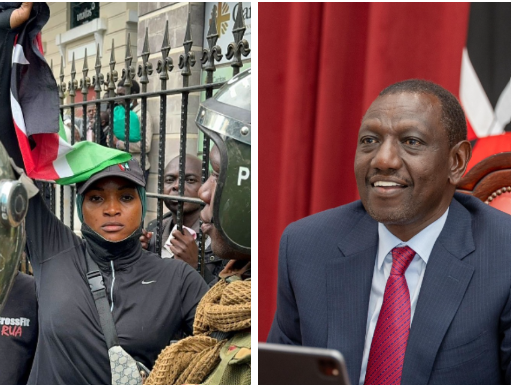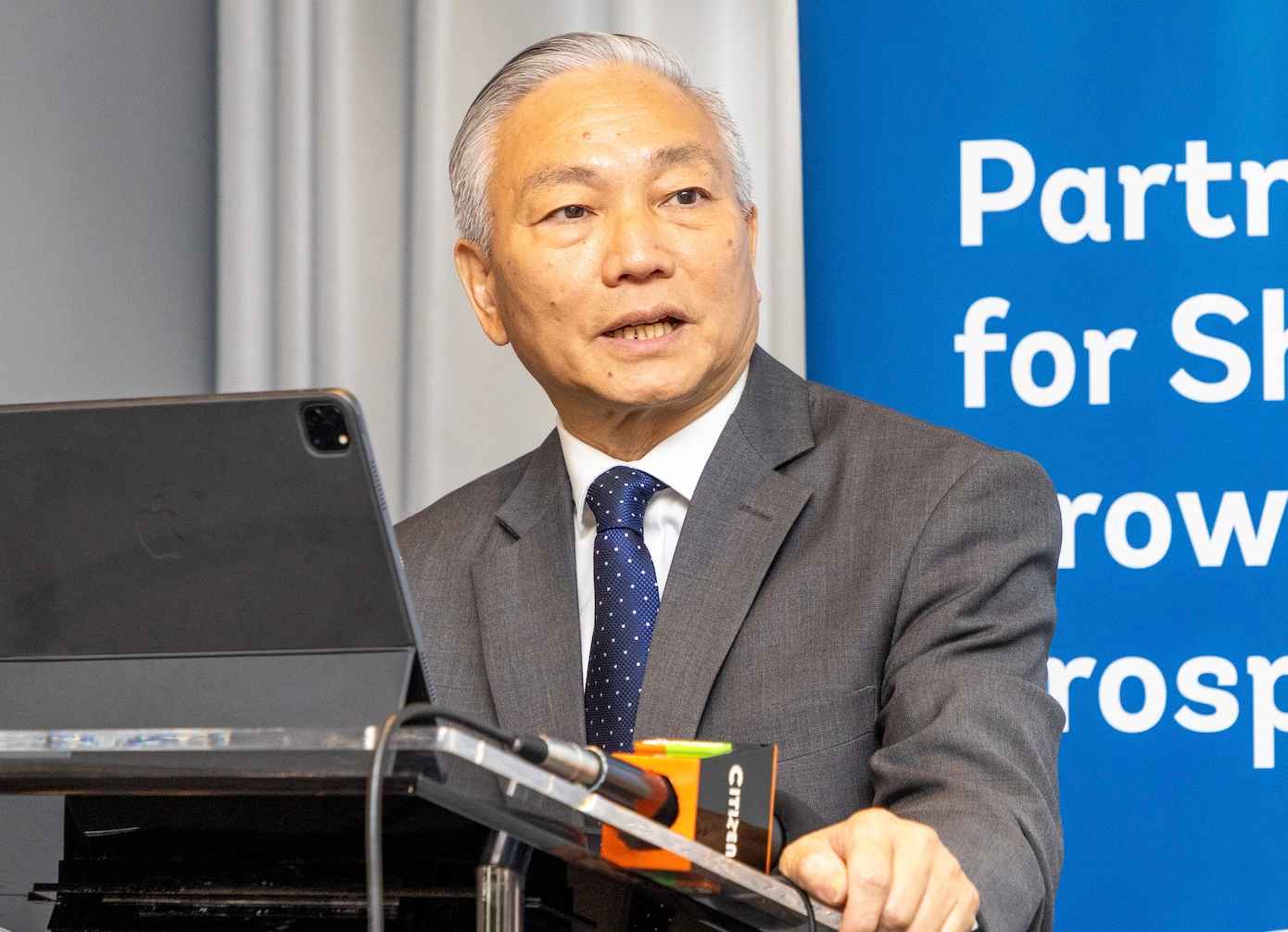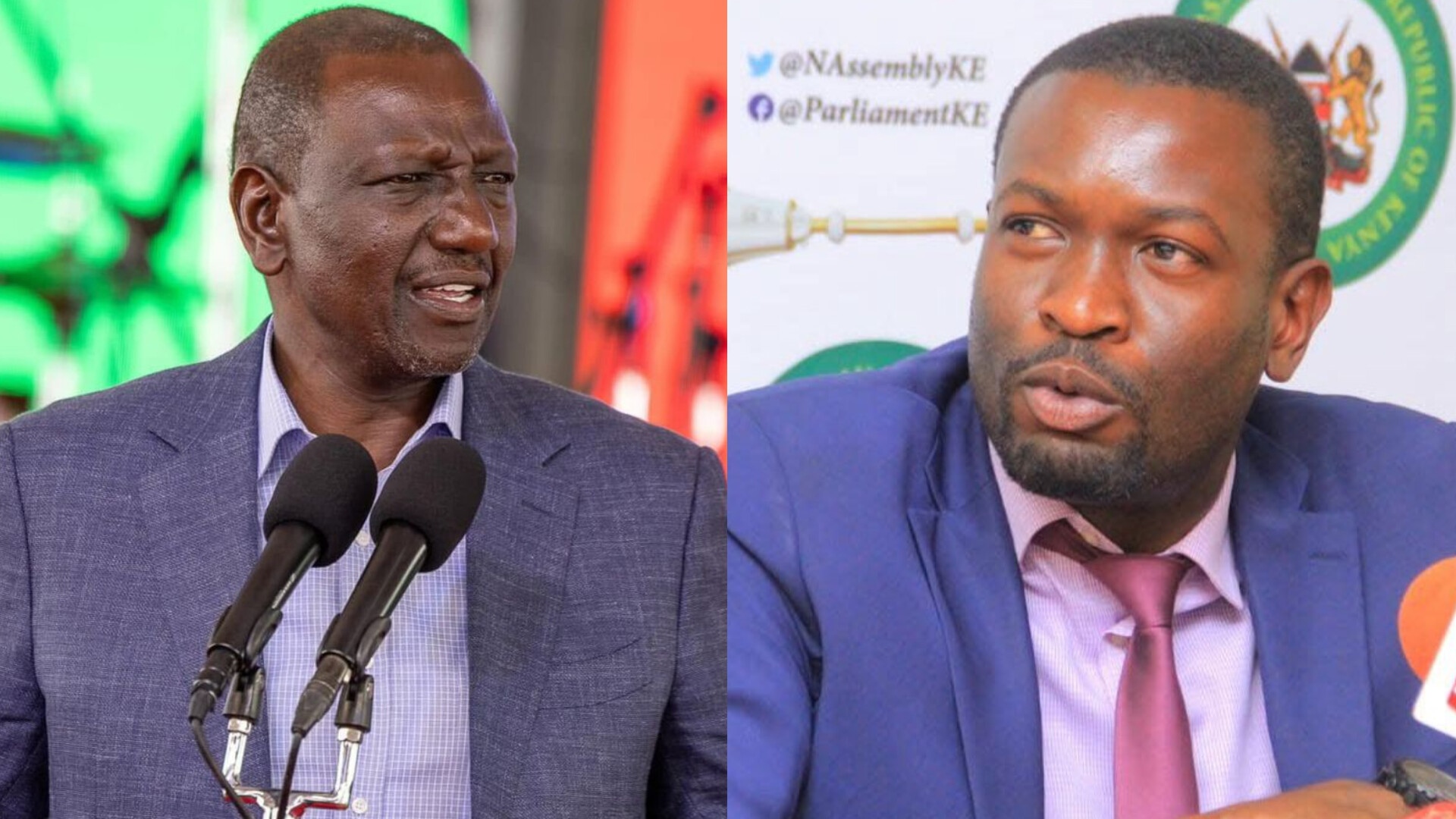By Martin Wachira
Ever been forced to eat humble pie and take a chill pill? That describes President William Ruto’s economic advisor, David Ndii, who on June 14, 2024, claimed on his X account that "digital activism is just wanking," at least in his mind, he thought.
A section of netizens immediately took on Ndii, warning him that he had made a grave mistake in undermining the power of digital media and the determination and focus of the Kenyan youth.
Read More
At the time, Kenyans were infuriated with the Finance Bill 2024, and social media was awash with #RejectFinanceBill2024 and #RutoMustGo slogans.
A section of the youth translated some of the clauses into their local languages to ensure that a majority of Kenyans, even those in rural areas, understood the punitive clauses proposed in the bill. The videos went viral on social media.
Through these hashtags, Kenyans demanded that President Ruto withdraw the Finance Bill 2024 due to the additional tax burden it would impose on them.
However, Kenyan leaders were not heeding the call of the youth, which led to the birth of a tribeless and leaderless youth movement led by Gen Z and millennials.
The youth would meet on X Space to organize, mobilize, and plan for peaceful protests (the first of its kind) against the bill, as enshrined in Article 37 of the Kenyan constitution, which states, “Every person has the right, peaceably and unarmed, to assemble, to demonstrate, to picket, and to present petitions to public authorities.”
Kenyans were saying a firm no to overtaxation, demanding accountability, and calling out the arrogance and opulence of government officials.
Tuesday, June 18, 2024, was a turning point in the Kenyan political landscape as thousands of Kenyans, mainly the youth (Millennials and Gen Z), took to the streets of Nairobi to protest against the 2024 Finance Bill.
Armed with placards, t-shirts, and chants against President William Ruto's administration, the peaceful protesters brought the city to a standstill. Their message was clear: “Don’t amend the Finance Bill; reject it entirely.” While one section of the youth took to the streets, another documented the live events on social media under the hashtag #RejectFinanceBill2024.
Photos and short videos were massively shared on all social media platforms, including X, TikTok, Facebook, and Instagram. The extraordinary thing about the youth of Kenya is that they knew exactly what they wanted: to reject the bill. However, it seemed the Head of State was not listening.
On June 20, 2024, the youth were back on the streets of Nairobi and they were fired up. At the same time, the Bill was in its third reading while Kenyans were on the streets.
The leaders paid no attention and arrogantly dismissed the protests. In the National Assembly, Dagoretti South Member of Parliament, John Kiarie, a comedian turned politician, sensationally claimed that some of the photos being shared online were edited.
To the surprise of many, he purported to be a graphic editor, stating, “Some of the photos we were seeing, I can tell you as a graphic editor, that they do not belong to this country.”
The legislator later apologized for his comments, calling them unnecessary. However, MPs passed the Finance Bill 2024, which the majority of Kenyans had opposed because the Kenya Kwanza coalition had the numbers in parliament. 205 MPs voted yes to the Finance Bill 2024 after amendments while 105 legislators opposed the bill.
This fueled further outrage, and Kenyans returned to the streets after holding several discussions on X. For the record, posts on X had surpassed 4.2 million, and the tag #RejectFinanceBill2024 was trending globally and was number one in Kenya for two weeks.
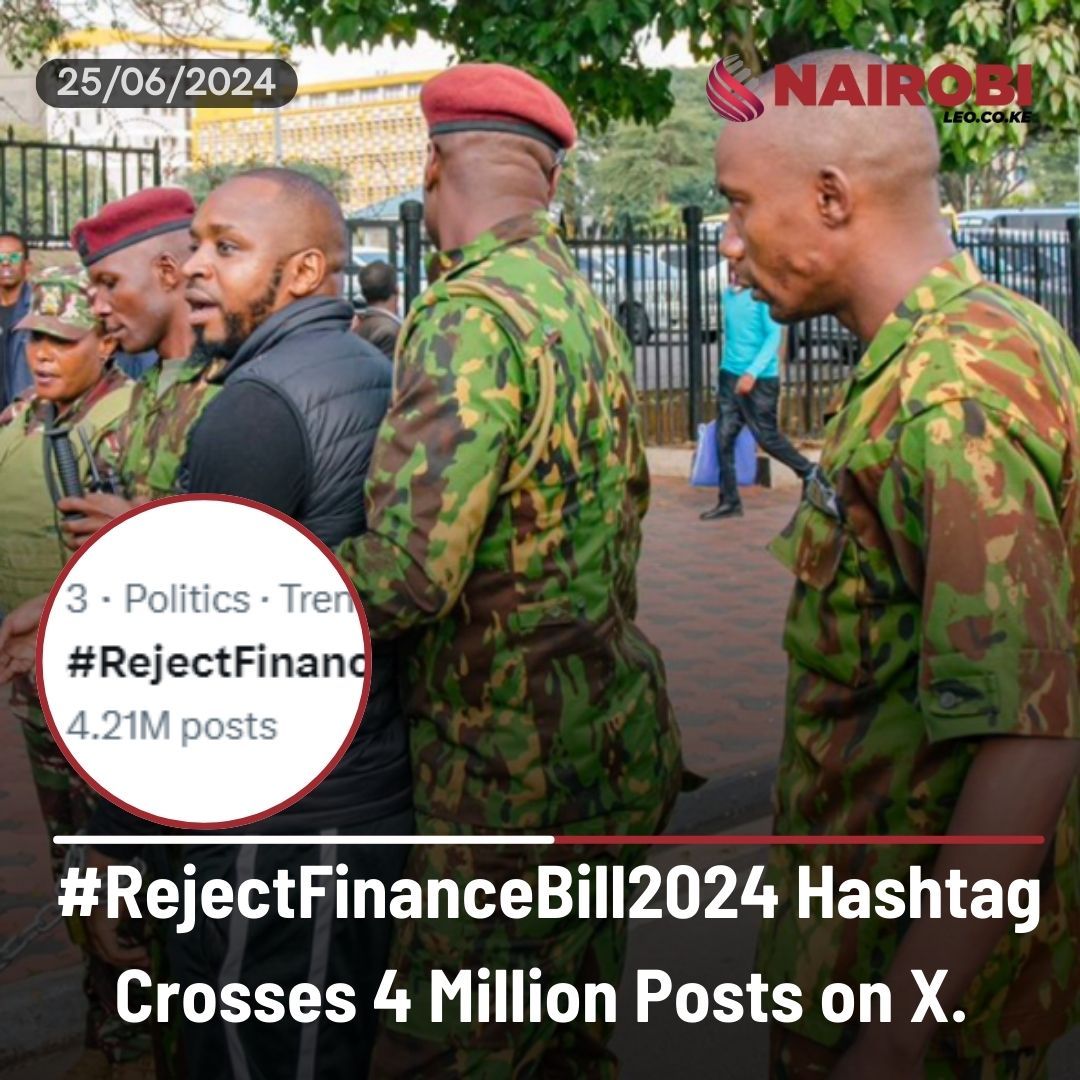
On June 25, 2024, Kenyans converged on Nairobi's CBD to protest the Finance Bill 2024, which was now in the hands of the President to either assent or reject.
However, it’s the unprecedented events that were witnessed on that day as police officers turned on peaceful protesters with tear gas canisters and water cannons. In some instances, police officers used live bullets on protestors and killed them.
In a statement by the Kenya National Commission on Human Rights (KNCHR) on Monday, 1st July 2024, 39 protestors had been killed and 361 injured since the protests began on 18th June.
"Fatalities and Injuries: Data from our records indicates that thirty-nine (39) people have died and three hundred and sixty-one (361) injured in relation to the protests countrywide. This is cumulative data from 18th June 2024 to 1st July 2024. Post-mortems for most of the victims are yet to be conducted. The dead are from Nairobi (17), Nakuru (3), Laikipia (1), Narok (1), Kajiado (3), Uasin Gishu (4), Kakamega (1), Kisumu (2), Kisii (1), Mombasa (3), Siaya (1), Kiambu (1) and Nandi (1). We condole with the families," KNCHR said in a statement.
President William Ruto finally responded by withdrawing the Finance Bill 2024 on June 26, 2024, after massive pressure from the public and the nationwide protests led by the youth.
“Having reflected on the continuing conversation around the content of the Finance Bill 2024, and listening keenly to the people of Kenya, who have said loudly they don’t want anything to do with this Finance Bill 2024.
"I concede and therefore I will not sign the 2024 Finance Bill and it shall subsequently be withdrawn and I have agreed with these members that this becomes our collective position,” Ruto said while addressing the Nation from State House.
Following his withdrawal, Kenyans held another discussion on the X platform to address the President’s conduct, which attracted a massive following of over 126,000 people.
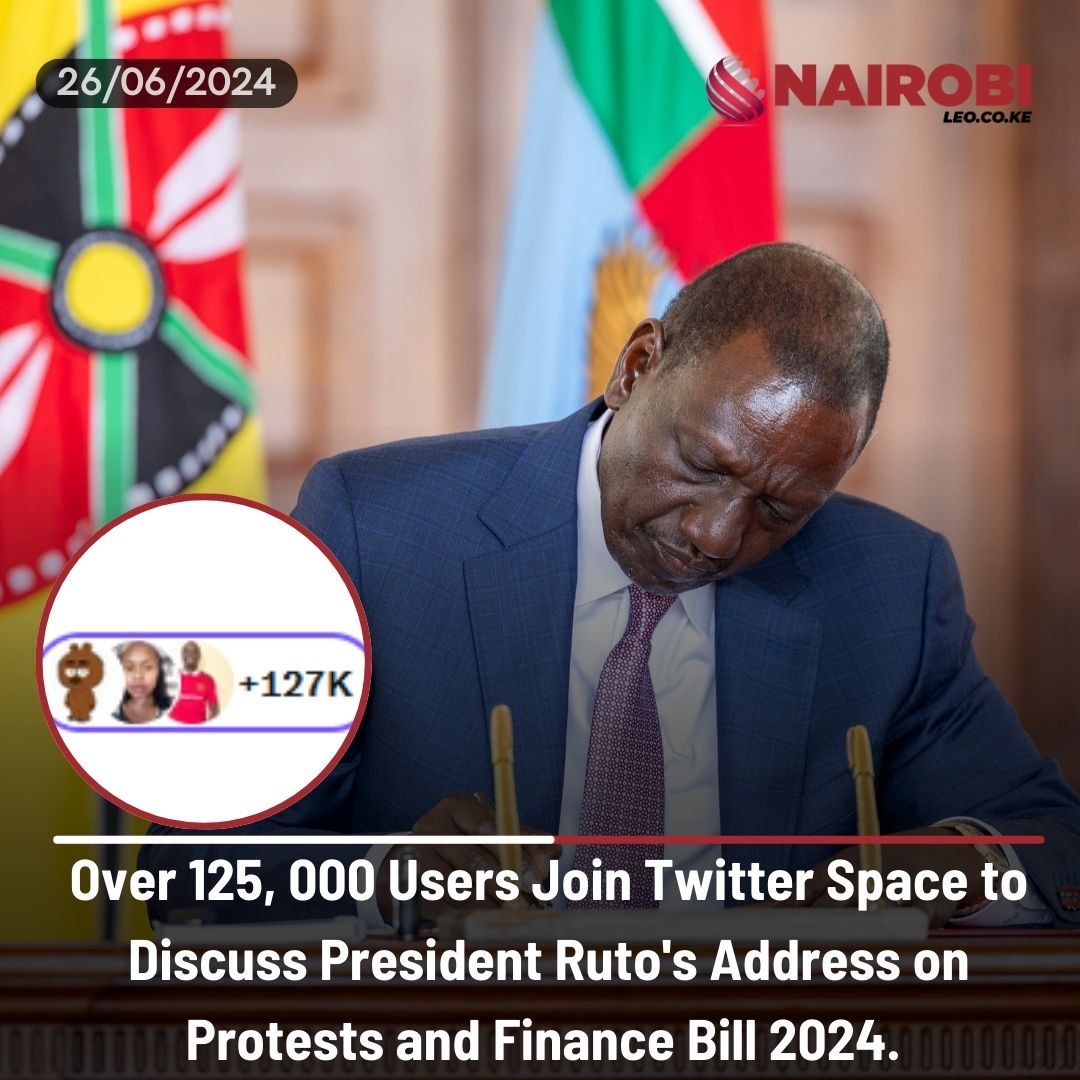
The questions were straightforward: Did people have to die for the President to listen? All we wanted was for him to listen. Users on the platform expressed a desire to host the President so that he could hear their concerns and respond to them.
However, that was not all; netizens also demanded that the Head of State reduce wasteful spending in the government.
Fast forward, after the President agreed to host a live discussion on X on Friday, July 5th, over 130,000 Kenyans joined and engaged with the Head of State. President Ruto directly engaged with Kenyans which was a first of its kind.
To show solidarity with the injured, Kenyans united and launched a large-scale online fundraising campaign. The funds were used to settle the medical bills of those injured and to support the families who lost their loved ones.
In honor of the protesters who lost their lives during the anti-finance bill protests, Gen Z and Millennials organized the Shujaaz memorial concert at Uhuru Park. They erected crosses at Uhuru Park to commemorate those who were killed while exercising their democratic rights.
While many have dismissed the power of social media, often labeling users as 'keyboard warriors', it's time for a rethink. As they say, change is inevitable and waits for no one. Kenyan leaders and leaders worldwide must readjust and adapt to this new norm.
According to Belva Digital, a marketing technology company, the #RejectFinanceBill2024 hashtag amassed a massive 713 million impressions and had more than 31 million interactions.
The conversation on rejecting the Finance Bill 2024 did not only feature in Kenya but at a global scale. Belva Digital indicates that the conversation was highly featured in the following countries; the United States, Tanzania, Belgium, Spain, Switzerland, Philipines, United Kingdom, and Indonesia among many other countries.
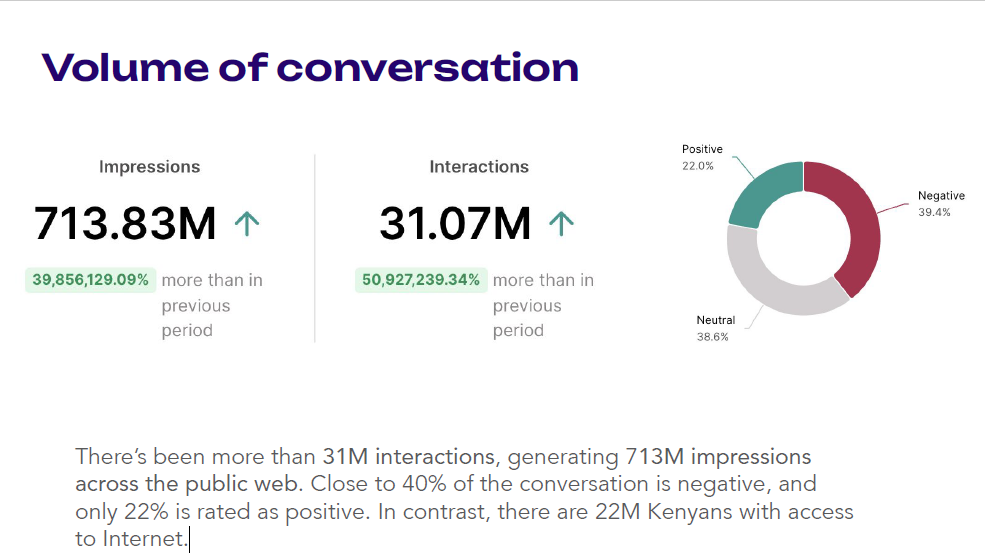
Due to the unrest in the country, despite the withdrawal of the Finance Bill 2024, President Ruto dissolved his cabinet on Thursday, July 11, in response to mounting public pressure.
This action was among the demands advocated by the youth on social media.
Martin Wachira is the Managing Director of Nairobileo.co.ke and is a seasoned digital media specialist with a decade of expertise.
